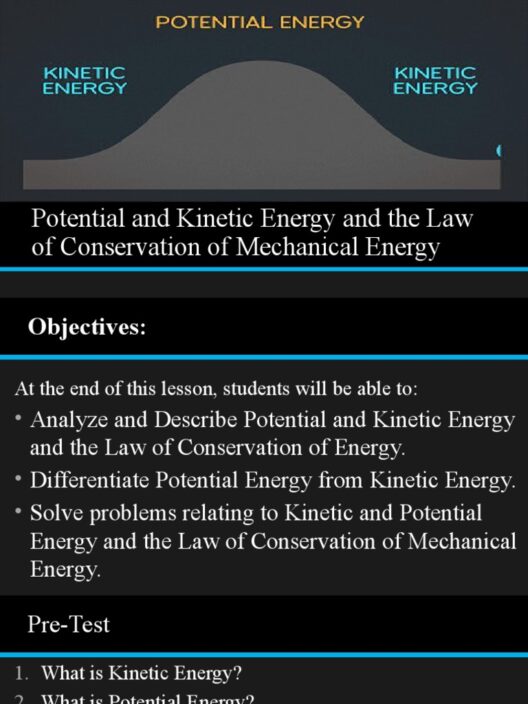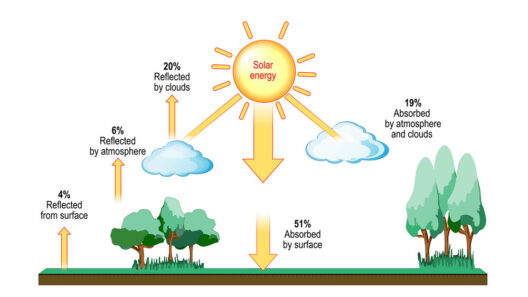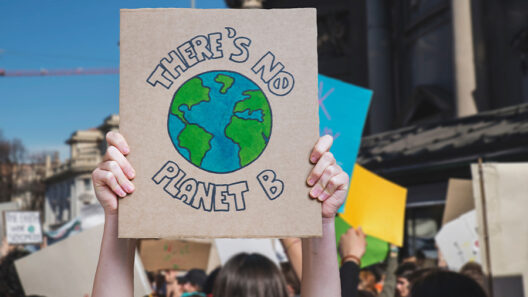Climate change has emerged as one of the most pressing challenges facing humanity, and the scientific community has reached an extraordinary consensus regarding its existence, causes, and potential impacts. This agreement forms a critical foundation for addressing the multifaceted environmental dilemmas that threaten both natural ecosystems and human societies. Understanding this consensus is vital, as it unveils the intricate relationship between human activities and the Earth’s climate, shedding light on the necessity for immediate action.
At the fundamental level, climate change refers to long-term alterations in temperature, precipitation patterns, and other atmospheric conditions on Earth. The prevailing scientific view posits that these changes are predominantly driven by anthropogenic factors, primarily the emission of greenhouse gases (GHGs) such as carbon dioxide (CO2) and methane (CH4). Industrialization, deforestation, and the burning of fossil fuels have exponentially increased the concentration of these gases in the atmosphere, enhancing the natural greenhouse effect and subsequently raising global temperatures.
A plethora of research indicates that the planet has experienced an approximate increase of 1.2 degrees Celsius since the late 19th century, with an alarming rate of warming observed in recent decades. This rise in temperature is not just a statistic; it brings with it a myriad of repercussions for ecosystems, weather patterns, and human health. Extreme weather events, including hurricanes, heatwaves, floods, and droughts, have become more frequent and intense, underscoring the reality of a changing climate.
Global scientific organizations, including the Intergovernmental Panel on Climate Change (IPCC), have synthesized thousands of studies to encapsulate the consensus on climate change. Their reports indicate that it is “extremely likely” (95% confidence or greater) that more than half of the observed increase in global average surface temperature from 1951 to 2010 was caused by human activities. This unequivocal assertion reverberates through the halls of policy-making, demanding a re-evaluation of energy systems, land use, and consumption patterns.
Moreover, the IPCC highlights that the window for meaningful intervention is rapidly closing. Limiting global warming to 1.5 degrees Celsius—a target widely acknowledged as pivotal in mitigating catastrophic effects—requires immediate and unprecedented reductions in greenhouse gas emissions. The urgency of this message cannot be overstated; it necessitates a collective response from governments, businesses, and individuals alike.
The ecological ramifications of climate change are profound, stretching far beyond temperature increases. Ecosystems, from polar regions to tropical forests, are undergoing profound transformations, leading to biodiversity loss and shifts in species distributions. For instance, coral reefs, which are vital for marine biodiversity, are deteriorating at an alarming rate due to ocean acidification and rising sea temperatures. This destabilization of marine ecosystems reverberates through food webs, affecting fisheries and the livelihoods of millions who depend on them.
Further compounding the dilemma, climate change exacerbates existing social inequities and poses significant risks to food security, water availability, and health. Vulnerable populations—particularly in developing nations—are disproportionately impacted, facing challenges in coping with the myriad consequences of climate change, including increased mortality rates from heatwaves and the proliferation of vector-borne diseases. The social implications of climate change create a poignant call for global cooperation and robust climate justice policies that prioritize the most affected communities.
Amidst the overwhelming scientific consensus, there persists a pervasive misconception in public discourse. A significant portion of the population continues to question the reality of climate change, often fueled by misinformation and sensationalism. This skepticism not only hampers public understanding but also undermines the urgency required to mobilize robust climate action. Education plays a pivotal role in addressing these misconceptions; disseminating factual, digestible information about climate science can cultivate a more informed citizenry poised to advocate for sustainable practices.
The fascination surrounding climate change also stems from its intersectionality with various fields of inquiry. Climate change is a catalyst for innovation, driving advancements in renewable energy technologies, sustainable agriculture, and carbon capture solutions. As the scientific community explores these transformative avenues, it is crucial to acknowledge that every participant in the global economy has a role to play in fostering sustainability. Collective efforts toward renewable energy adoption, waste reduction, and restoration of natural habitats are vital in mitigating climate impacts.
Furthermore, addressing climate change involves engaging in multifaceted dialogues that encompass political, economic, and social spheres. Policymakers are called to enact legislation that mandates emissions reductions and incentivizes sustainable practices. Corporations must also prioritize corporate social responsibility, acknowledging their environmental footprint and investing in greener technologies. At the individual level, lifestyle changes—such as reducing meat consumption, minimizing waste, and utilizing public transport—coalesce into a concerted effort that can drive momentum for systemic change.
The scientific consensus on climate change is not merely an academic exercise; it is a clarion call to action. The consensus underscores the urgency of the situation, emphasizing that mitigating climate change is an existential imperative rather than a choice. Addressing this global challenge requires an unprecedented degree of collaboration across borders, sectors, and communities. With concerted effort rooted in the empirical evidence of climate science, humanity has the potential to forge a sustainable future characterized by resilience, equity, and flourishing ecosystems.
In conclusion, the global consensus on climate change is a compelling testament to the importance of scientific inquiry in shaping our understanding of complex environmental phenomena. By continuing to engage with the facts, dismantling misconceptions, and advocating for systemic changes, societies can work cohesively to combat one of the most critical challenges of our time. The future of our planet hinges on the actions we take today; it is imperative that we heed the scientists’ call and act decisively in the face of climate change.








